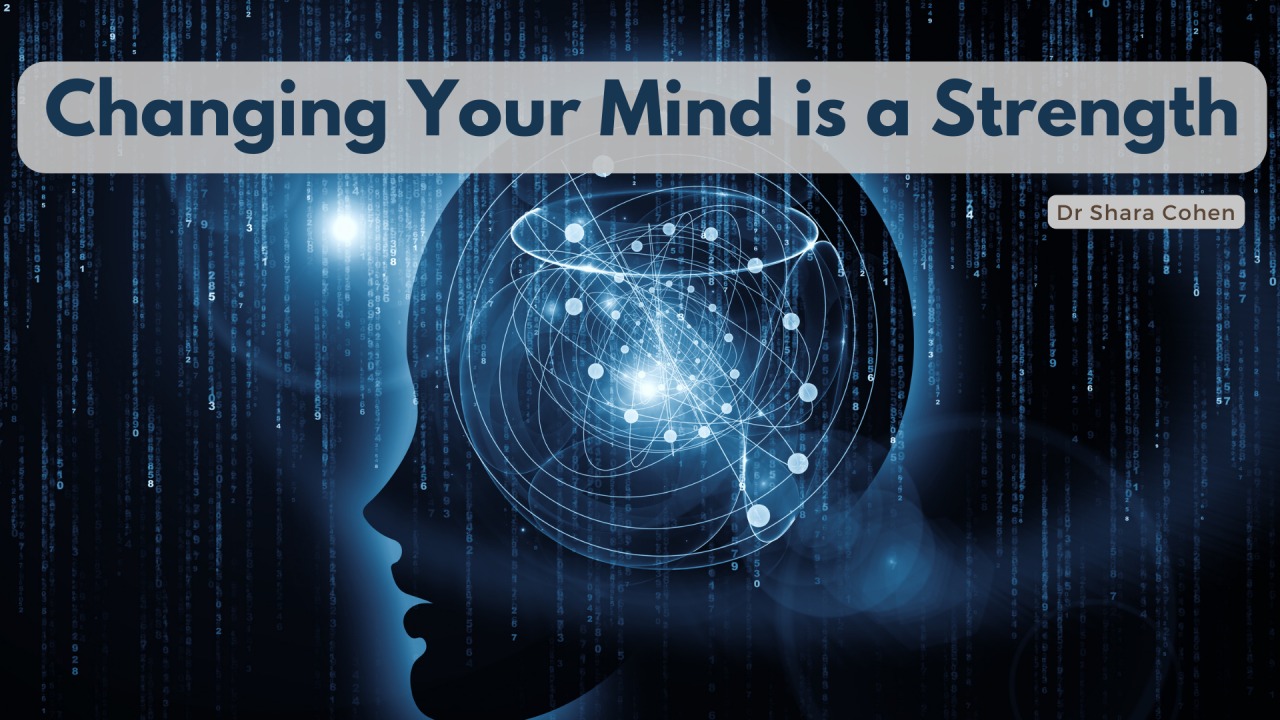
Follow WOWNEWS 24x7 on:

Conventional wisdom often paints changing your mind as a sign of indecisiveness. However, groundbreaking new research studying brain activity challenges this notion, showing that revising decisions is often a sign of cognitive strength and adaptability. This detailed study provides fascinating insights into how our brains process uncertainty and information, underscoring that flexibility in thought can improve judgment, learning, and outcomes.
Key Highlights From The Brain Activity Study
Study Focus: Researchers used advanced neuroimaging techniques to monitor brain regions involved when participants changed their previously made choices upon receiving new information.
Neural Mechanisms Identified: The prefrontal cortex, responsible for reasoning and decision-making, showed increased activity during moments of reconsideration, indicating enhanced cognitive processing rather than confusion.
Positive Role Of Doubt: Doubt and uncertainty were linked to deeper brain engagement, enabling individuals to reassess situations critically rather than sticking rigidly to initial choices.
Adaptivity Versus Rigidity: People who frequently adjusted their decisions based on evidence performed better in problem-solving and risk assessment tasks.
Learning And Memory Effects: Changing the mind activated neural circuits connected to learning and memory consolidation, supporting the integration of new experiences.
Emotional Regulation: Brain areas tied to emotional control were also more active, suggesting flexible thinkers manage uncertainty with less stress or anxiety.
Real-World Implications: The findings have ramifications for decision-making in business, education, therapy, and everyday life, promoting a culture that values reassessment and open-mindedness.
Cognitive Biases Addressed: The study helps explain how overcoming biases like confirmation bias through mental flexibility can lead to improved accuracy.
Encouraging Growth Mindset: The neural basis of changing one’s mind aligns with psychological concepts of growth mindset, emphasizing learning through revision.
Potential For Neurofeedback Interventions: Understanding brain signatures of decisional flexibility opens doors for training methods to boost adaptability.
Why Changing Your Mind Is A Strength, Not A Flaw
In daily life, people often hesitate to change their opinions fearing judgment or perceived weakness. However, this study shifts the narrative, revealing brain activity that signals deliberate reevaluation and intelligent processing supporting better-informed decisions. It highlights that mental agility, not stubbornness, leads to cognitive resilience and smarter behaviors.
How This Research Advances Neuroscience And Psychology
The integration of brain imaging with behavioral experiments provides empirical evidence linking specific brain regions with cognitive flexibility during decision revision. This bridges gaps between theories of human rationality and real neural functioning, informing future work in cognitive neuroscience.
Practical Takeaways For Embracing Mental Flexibility
Welcome New Information: Approach evidence that challenges your viewpoint as opportunities to improve rather than threats to ego.
Cultivate Self-Awareness: Recognize emotional responses in decision-making to avoid defensive rigidity.
Foster A Growth Mindset: Prioritize learning and adaptation over being “right” all the time.
Practice Reflective Thinking: Regularly review past decisions to identify where adjustments could have improved outcomes.
Encourage Open Dialogue: Surround yourself with diverse perspectives that promote constructive reassessment.
Use Mindfulness Techniques: Manage anxiety related to uncertainty for clearer thinking.
Looking Ahead: Future Applications And Research Directions
Ongoing studies exploring how decision-making flexibility affects mental health, leadership success, and innovation capacity will build on these findings. Potential neurofeedback therapies and AI-driven decision aids could use this knowledge to support adaptability in complex, fast-changing environments.
Conclusion
This pioneering brain study compellingly shows that changing your mind reflects complex, adaptive thinking essential for navigating an uncertain world. Embracing mental flexibility nurtures learning, emotional balance, and better decision outcomes. As society evolves, valuing the science of change will empower individuals and organizations to thrive in complexity and uncertainty.
Sources: Nature Neuroscience Journal, Scientific American, Harvard Medical School, BBC Science, Frontiers in Psychology





